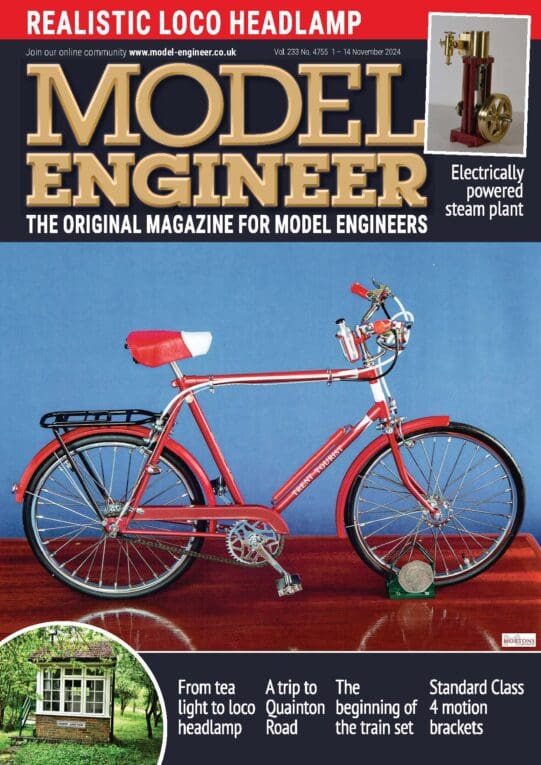Abrasive block
Abrasive block
- This topic has 7 replies, 5 voices, and was last updated 28 October 2024 at 18:02 by
 Sonic Escape.
Sonic Escape.
Viewing 8 posts - 1 through 8 (of 8 total)
Viewing 8 posts - 1 through 8 (of 8 total)
- Please log in to reply to this topic. Registering is free and easy using the links on the menu at the top of this page.
Latest Replies
Viewing 25 topics - 1 through 25 (of 25 total)
-
- Topic
- Voices
- Last Post
Viewing 25 topics - 1 through 25 (of 25 total)
Latest Issues
Newsletter Sign-up
Latest Replies
- Sandvik inserts – parting off
- 775 Motor based Dynamo ?
- BLACKMAIL
- A couple of ‘soon to be available in the UK’ lathes that look interesting
- What did you do Today 2024
- Jaguar [oh dear]
- Split Cotter Clamp upgrade – Clarke Combination Lathe
- Diesel Heaters
- Jakobs Gear Hobber from scrap (no casting)
- MEW 346 creates new definition of ‘universal’,










